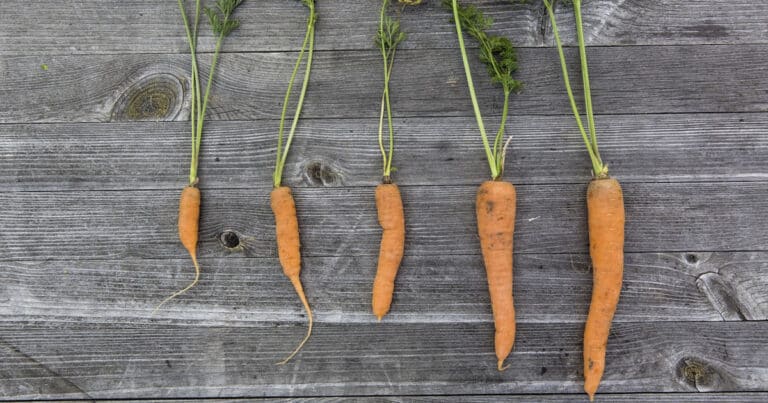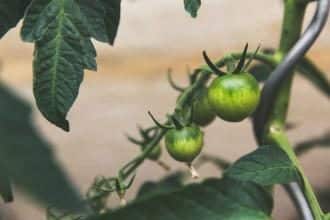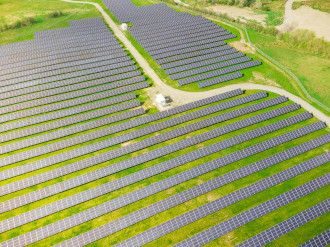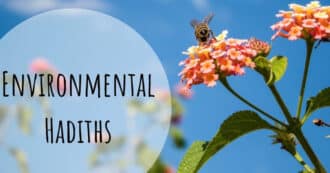By Sydney Cohen – The world is changing. The lifestyles of the past, where people consumed and produced without restraint and with little consideration for future consequences, are coming to an end. Consumers around the world are demanding better products that are made in a more sustainable way – not just for our planet’s sake but also for their own health and happiness.
In a world where the earth’s resources are limited, sustainable production and consumption is an important way to reduce our impact on the planet. Consumers have been shifting their attitudes towards sustainability in recent years and it has become a major trend for companies as well, particularly those that produce consumable goods and services.
In this blog post, we will explore how you can take steps to live more sustainably and why making changes in your everyday life to live a little greener is not only incredibly beneficial for your health but also necessary for the environment.
Consumption and Production Patterns
One of the most important things to know about consumption and production patterns is that they have an impact on our society, economy, and environment. Consumption refers to “the use of a product or service.” Consumption can be broken down into two categories: durable goods and nondurable goods. Durable goods last for more than three years while nondurable goods are intended for immediate use. Consumption also includes the end-of-life process which takes care of products in order to make sure that they do not become hazardous waste. Production is how we create consumer products such as food, clothing, and cars using natural resources like water, soil, air emissions from factories etcetera.
Examples of unsustainable production and consumption processes are very prominent in mass agricultural farming techniques. One includes using many chemicals such as pesticides in order to yield the most crops. On large agricultural farms, this mass production method depletes natural resources and toxic materials enter our atmosphere at alarming rates. The use of toxic materials creates greenhouse gas emissions, which does not protect the needs of future generations as greenhouse gases in our atmosphere results in climate change, which harms our natural environment and global health.
Our current consumption and production processes are improving, but still have a long way to go in order to be completely sustainable. Incredible amounts of greenhouse gases and pollutants enter our atmosphere every day as a result of industrial production processes. In order to ensure sustainable consumption patterns and better quality of life, we must work to incorporate more sustainable production practices into our industries in order to prevent further environmental degradation and bring a better quality of life to future generations.
Sustainable Consumption
Sustainable consumption is a term that refers to the act of consuming goods and services in such a way that they do not have an adverse effect on the environment. Sustainable consumption can be achieved by reducing environmental impacts, using renewable resources and raw materials, and avoiding or minimizing toxic chemicals throughout production.
Sustainable Production
Sustainable production is about producing goods so as to minimize any negative environmental effects. Sustainable production should also use renewable resources and raw materials while being careful not to produce any toxic substances that would impact the environment negatively.
Sustainable Product Life Cycle
It is important to consider the entire product life cycle when determining the sustainability of the production and consumption patterns of a product or company. Sustainable consumption and production processes involve practices that start at the very beginning of a product’s life cycle. For example, environmentally friendly production processes aim to include as many of the following goals as possible:
- reducing and avoiding harmful emissions into the environment
- efficiently using energy and resources
- utilizing renewable energies
- using sustainably produced resources
- avoiding waste, and recycling materials
- working to restore and maintain the biological diversity of the world’s ecosystems
Prioritizing our Planet
Sustainable consumption and production processes are not incredibly difficult to accomplish – it is about prioritizing our planet and our global health, to ensure environmental sustainability, economic growth, and goods and services for future generations.
Sustainable Development
Sustainable development is the meeting of social, economic, and environmental needs. Sustainable consumption has been a key component of sustainable development in recent years, as consumers have come to realize that their purchasing habits affect the environment around them. In order for sustainable consumption to be achieved, there must be an understanding of how human behavior can affect natural resources and waste production.
Sustainability
Sustainable development differs from the term sustainability, as sustainability is a long-term goal for our world, and sustainable development refers to the processes needed to be taken and implemented in order to reach this goal. An important aspect of sustainable development is creating more sustainable industrial practices, enhancing social inclusion, and still ensuring economic growth. The industrial revolution brought an incredible boost to our economy which continues to grow even after hundreds of years. However, industrial manufacturing processes often have incredibly harmful effects on the environment, such as climate change, and are in desperate need of a change.
Our use of natural resources is frequently and has historically been not sustainable, which is why we must work to support companies that prioritize sustainable development and consumption, limiting their emissions of waste and working to take care of our natural environment.
Sustainable Development Goals
The Sustainable Development Goals (SDGs) are a set of 17 goals that were agreed upon by 193 United Nations member states at the Sustainable Development Summit in September 2015. The SDGs aim to promote sustainable development, reduce poverty and inequality, protect the environment, and improve prosperity for all people across the world. One important goal is sustainable consumption and production which aims to “ensure access to safe food” as well as “sustainable production of goods”.
The SDGs respond to basic needs, particularly in developing countries. They work to promote social inclusion in many developing countries, by providing access to employment and work opportunities. Not only do the SDGs stand for environmental protection, but also benefit the quality of life. Additionally, energy consumption is an important aspect of the SDGs. The SDGs, in their work to regulate production processes and make them more environmentally friendly, focus on energy consumption and usage to ensure the sustainable utilization of our natural resources and prevent further harm to the planet.
Sustainable Consumption is Our Responsibility
The future of our environment, economy, and society is in all of our hands. Together we can work to make sustainable development, and eventually a sustainable world a reality for the sake of future generations that will be working hard to save our planet from climate change through sustainable processes.
Let’s start today by doing what we can with small changes. These can be as easy as supporting companies that are known to use sustainable production processes, consuming produce that is grown locally or organically, and even turning off lights when you leave the room or unplugging electronics before bedtime so they won’t continue drawing power while idle. These are just a few simple examples but there are many more ways that each person has an impact on our world reaching sustainability. Let’s see how far we can go!
Religion and Sustainable Consumption
We find in the Bible a critique of non-sustainable consumption through the impulsive character of Esau, who is ready to sell his birthright for a bowl of soup that he “pours down his throat.”
Don’t Swallow The Values of Esau
Rabbi Shaul David Judelman makes the following observation in Eco Bible Volume 1: “The Torah’s description of Esau’s decision offers deep insights for any society that so readily swallows the values of Esau. The culture that wants things now has given us fast food, fast cars, and quickly melting polar ice caps. This culture is out of balance. What does balance mean? Balance means that my own physical needs are balanced against a nexus of relationships. These might include other people’s needs, my future needs, or the availability of resources. There is a strong critique within environmental discourse against the nature of the society that developed modern technology. However, this is not a diatribe against technology or modernity, but rather a strong statement about the manner in which we pour things down our throat. This analysis occurs both on the personal level of our private consumption habits and on the societal level of manufacturing and pursuing lifestyles that have not yet proven their balance.”
Rabbi Judelman invites us to shift away from the chaotic consumption of Esau as a society and towards a more calm and balanced approach. By treating each resource as a precious gift from God, and not something to be either poured down our throats or thrown away, we can transform our relationship with creation and the Creator alike, ensuring a vibrant world for future generations.
* Featured image source







